The disturbing pictures included with this article, taken by a US Department of Agriculture inspector in 2017, are worth far more than a thousand words. And Moulton Chinchilla Ranch (MCR)—a licensed dealer supplying chinchillas for experimentation (see AWI Quarterly, summer 2020)—knows it.
In fact, by early 2018, MCR had had enough of the inspector who took them, appealing citations in his inspection report and complaining to the USDA that he was always “looking for anything to cite.” To MCR, it would seem, such photographs are not clear evidence of atrocious conditions, but rather overblown accusations from a meddlesome inspector. Further, MCR railed that, unlike USDA dairy inspectors, this one didn’t even try to help the facility and treated it “like the enemy.”
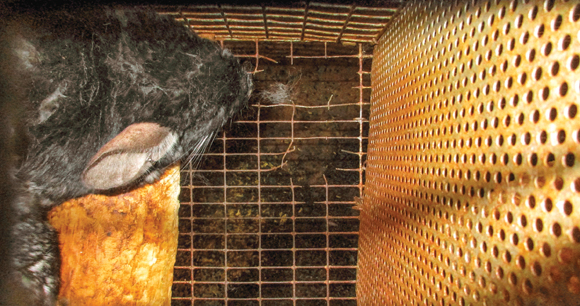
It turns out that MCR had little to fear from its alleged enemy. After the facility threatened that it “would not allow further inspections” unless the USDA addressed these baseless allegations, the department
- barred the inspector from visiting MCR;
- announced the next inspection, which—incredibly, given the advance warning—found more chinchillas (22) in need of veterinary care during that October 2018 inspection than it did in any inspection before or since;
- chose not to include this particularly damning evidence from the October inspection in its November 2018 enforcement complaint; and
- failed to file a second complaint regarding all the additional citations documented in 12 inspection reports from July 2017 to March 2020.
Because of this failure to file another complaint against MCR for its repeated flouting of the law, the USDA cannot even mention the ongoing noncompliances when a hearing before an administrative law judge (originally scheduled for April 2020) is finally held.
MCR would consider Sanford Feldman, unlike the inspector, an ally. He is the director of comparative medicine at the University of Virginia and a veterinary consultant for MCR. In May 2020, when Science published a damning article revealing conditions at MCR, it included quotes from Feldman asserting that the chinchillas at MCR are not “suffering terribly” and that the facility wants to “do right by the animals.” These photos prove otherwise. When research institutions and others in the industry purchase from MCR (or work with Feldman, who has a vested interest in overlooking such suffering—which is indeed terrible), they are complicit.
Many of the grim conditions evidenced by the USDA photos at MCR—from serious eye issues to widespread excrement in cages to soiled food—were also documented by the USDA this year at another research supplier, Ryerson Chinchilla. (Ryerson has over three times the number of chinchillas that MCR has.) Inexplicably, a now-retired inspector had characterized Ryerson’s failure to disclose the existence of 1,000 chinchillas at its facility and use of “painful” and “unacceptable” killing methods as “non-critical.”
Despite these abysmal records, MCR and Ryerson have supplied chinchillas to some of the most prestigious research institutions in the world. Boston University, for one, still lists MCR and Ryerson as its only approved chinchilla vendors, months after the publication of Science’s devastating exposé. The USDA has apparently launched an official investigation of Ryerson (the department neither confirms nor denies such action). Time will tell if it botches that one as badly as it has with MCR. It is unconscionable that these chinchillas continue to suffer so terribly while industry and the USDA enable this wanton yet preventable abuse.
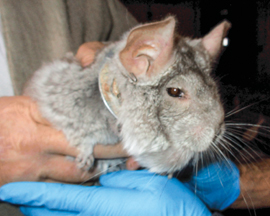
|
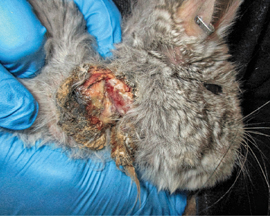
|
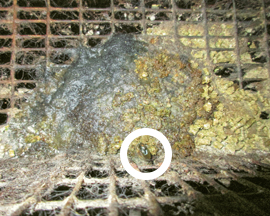
|
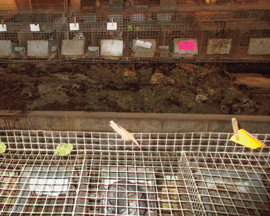
|
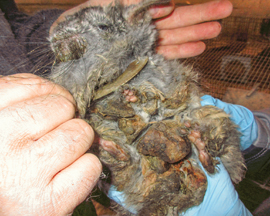
|
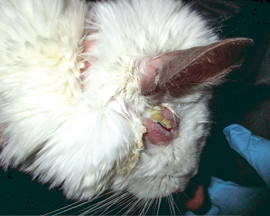
|
What You Can Do
The USDA can no longer be allowed to turn a blind eye toward such cruelty. Please send a letter or email to Kevin Shea, USDA-APHIS Administrator, 1400 Independence Avenue, SW, Washington, DC 20250, or [email protected]. Respectfully ask the department to file a second complaint against MCR and include the taxpayer-funded citations it documented over the past three years—which highlight the facility’s ongoing animal abuse—and permanently revoke MCR’s license. The USDA undercuts its own inspectors when it chooses to ignore their findings.
Also, please urge the department to conduct a thorough investigation and file a complaint against Ryerson Chinchilla Ranch that fully addresses the issues uncovered by inspectors. We believe that the grave citations and suffering—in many ways eerily reminiscent of MCR—should also result in revocation of Ryerson’s breeder license.
The images in this article are taken from February and April 2017 USDA inspection reports of MCR obtained via FOIA.